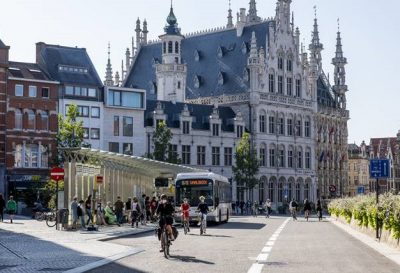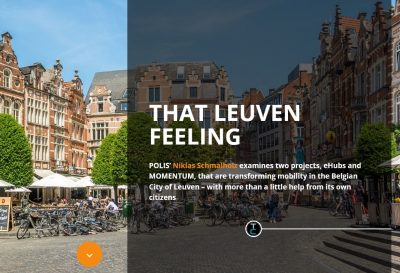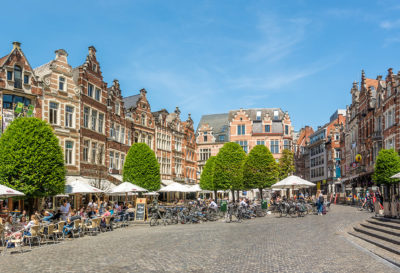
INTERVIEW LEUVEN
COVID-19 pandemic functioned as catalyst for implementation in Leuven
Our last summer interview highlighted the progress made in Leuven and explained even some positive COVID-19 effects on implementation.
Website: https://www.leuven.be/
Estimated population: 100,244 citizens.
Leuven is the location of the oldest university of North-West Europe, with more than 60,000 students. The city finds itself both as a suburban area in the influence sphere of Metropolitan Brussels, as well as an urban centre for rural communities in a 30 km radius. The city is struggling with congestion and transport planning from both perspectives: commuter hub and urban attraction. At the same time, there is a spectacular growth in public transport use and there is a high share in cycle use.
Beyond public transport, Leuven counts with a car-sharing system used by 2% of the population and promoted by the city by providing dedicated parking spaces, and bike rental systems. It is planned that different shared mobility services will start their operations during the first months of the project liftetime.
Leuven’s policy priorities include the reduction of congestion, energy consumption and emissions, and the improvement of accessibility to and from the city centre, the systematic incorporation of new mobility services and the integration of public transport with surrounding communities.
Leuven will further integrate all different transport systems and mobility providers with the future spatial developments at a regional level. Within this context, it is crucial to have clear insights on future travel behaviour and future evolution in modal shifts and transport trips for the different travel modes. To this end, Leuven will develop a new, state-of-the-art multimodal traffic model which also takes into account the new mobility providers.

Our last summer interview highlighted the progress made in Leuven and explained even some positive COVID-19 effects on implementation.

MOMENTUM has published its second article in the Thinking Cities magazine, focusing on the project synergies in Leuven, a mid-sized Belgian city.

We spoke with Tim Asperges, transport policy advisor from Leuven, about the synergies of the eHubs- and the MOMENTUM projects in Leuven.

An overview of Leuven’s mobility challenges, policy priorities and motivation to join MOMENTUM.
This website uses cookies so that we can provide you with the best user experience possible. Cookie information is stored in your browser and performs functions such as recognising you when you return to our website and helping our team to understand which sections of the website you find most interesting and useful.
Strictly Necessary Cookie should be enabled at all times so that we can save your preferences for cookie settings.
If you disable this cookie, we will not be able to save your preferences. This means that every time you visit this website you will need to enable or disable cookies again.
